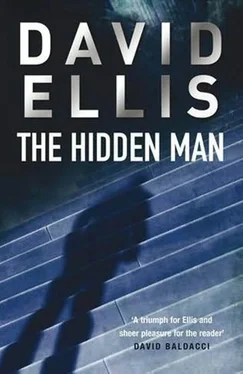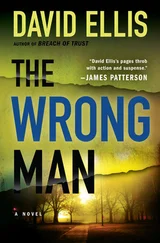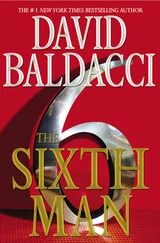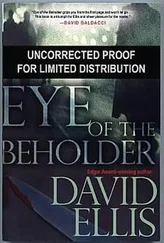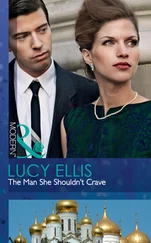When I walked into my office, a shiny new, brown leather briefcase was resting on one of the chairs opposite my desk. Marie informed me that my new friend, Smith, had dropped it off first thing this morning. I opened the gold clasp and counted out ten thousand dollars in cash. A healthy retainer, indeed, but it was rare to get this kind of money in cash. Smith, apparently, was not inclined to reveal aspects of his personal information that a check would disclose.
I fell into my chair and checked my watch. A client was due to arrive shortly, for a second tour of duty. Ronnie Dice was the second client I represented in my ill-conceived reincarnation as a solo practitioner. He was, as far as I knew, a fairly small-time crook. He’d grown up as a pick-pocket, lifting wallets on buses, that sort of thing, but when he came to see me, it was on a gun charge. Ronnie had been around, but not part of, a scuffle on the south side. When two patrol cars showed to break it up, Ronnie had suddenly discovered his legs and decided to adios in a hurry. Headlong flight is not usually an activity in which innocent people partake, so one of the patrol officers, not surprisingly, decided he’d like to inquire of Mr. Dice and gave chase.
Here’s a good rule of thumb if a cop is somewhere nearby: Don’t run. He’ll notice.
Ronnie was caught and found with an unregistered firearm. They charged it on the state level, not federal. I tried to suppress the evidence of the gun, saying the cops lacked probable cause. I lost. At trial, I argued that the gun was planted by the white cops on the black defendant. I had two jurors in mind in making that argument. They ended up hanging 8-4, which meant I actually got four jurors toward reasonable doubt.
The state said they’d retry but the judge let the prosecutor know that she wasn’t favorably disposed to that idea, which was a polite way of saying she didn’t want to take up three more days of her docket on a bullshit case. I felt lucky to get four jurors the first time and didn’t think Ronnie would fare so well the second go-round. So I told the judge that, after the testimony of the officers at trial, I thought I had new grounds to argue for suppression of the evidence. I also proposed, in lieu of a retrial, a misdemeanor plea. The judge said she’d be willing to reconsider my suppression argument if the state retried and basically forced the misdemeanor plea down the prosecutor’s throat.
You’d think Ronnie had received the electric chair, the way he fussed and moaned, but I think he realized the thing had turned out pretty well, all things considered. Especially because he stiffed me on the bill. Ronnie Dice, to whom we now affectionately refer as No-Dice, taught me the single most important rule of a criminal defense attorney: Get your money up front.
At a quarter to eleven, Ronnie Dice walked into my office. I told him he was late and he acted like I’d just made a joke. Ronnie was dressed the same as the first time he paid me a visit, in a gray hooded sweatshirt, ratty jeans, and canvas high-tops. He had a painfully youthful look about his eyes that made me think, as I did so often with my clients, that things should have turned out differently for him.
“Jason Kolarich the man,” he said, getting comfortable in the chair across from me.
“Ronald Dice the deadbeat.”
He ignored that, launching into the story of his latest brush with the law, a story that, with minor variations, I’d heard many times. As a warm-up, he informed me that the whole thing had been a giant misunderstanding. Apparently he had no idea that there was dope in the bag he was carrying from one lowlife to another. He tried to explain the communication breakdown to the friendly neighborhood policeman, but alas, the officer was less than receptive to his plea.
Part of being a criminal defense attorney is being an editor. Clients tell you all sorts of things that have nothing to do with the case. Ronnie seemed to think that, in addition to me clearing him of all criminal charges, we would have one whale of a civil-rights case against the cops because Ronnie’s forehead got in the way of the car door when he was being helped into the backseat.
“Ronnie, if memory serves, a month ago I hung a jury and pleaded you down to a misdemeanor when you were looking at eighteen months. But when I sent you the bill, you told me to go fuck myself.”
“Nah, boss, you should’ve gotten that payment.”
Interesting how he put that. “I agree, Ronnie, I should have.”
“I don’t know what coulda happened.”
Another misunderstanding, apparently. “You’re lucky I’m in a good mood.”
“This is you in a good mood?” He laughed, overcompensating. He gave me the details, including the date of the prelim, the names of a couple of witnesses, and a sincere promise to have twenty-five hundred dollars in my hand by close of business tomorrow.
“Try to get the money legally,” I suggested, prompting more laughter. He was laughing because the odds of my ever receiving payment were longer than the odds of Ronnie Dice becoming a figure skater with the Ice Capades.
TODAY, lunch is a picnic in the park. Talia lays out a checked cloth blanket-part of a picnic set, a wedding present-while little Emily runs around in circles, her arms out straight, emulating an airplane.
Talia has the food-her wonderful chicken salad, new potatoes, and coleslaw-set out on a couple of plates, a lunch for two. She opens a bottle of Evian and calls out to our daughter. “C’mon, honey, let’s eat,” she says.
Emily, still playing the airplane, circles the picnic table and comes in for a safe landing. She picks up one of the small triangles of sandwich her mother has cut and crinkles her nose. “I don’t like it,” she says.
“You like chicken salad, Em. You liked it last week.”
Emily sets the food down and frowns. “I don’t want it.”
Talia puts her hand on Emily’s head of blond curls, her only physical feature owing to me. “You want peanut butter and jelly?” Talia brought an extra sandwich just in case.
Emily looks up into the sun, squinting as the rays beat down on her face. “Is Daddy coming today?”
Talia reaches down and gives our daughter a kiss. “Not today, sweetheart,” she says. “We’ll see him soon.”
You will . You’ll see me soon.
HIS NAME WASN’ T SMITH, though that was the name he had given to the lawyer, Jason Kolarich. He didn’t expect Kolarich to buy it, but he guessed-correctly-that Kolarich wouldn’t worry too much about the identity of his benefactor, not when that benefactor was offering three hundred dollars an hour, and not when the client was an old friend.
Smith fondled a cuff link as he waited in his client’s office. The office was spacious but simple, the office of a man who paid no heed to the finer details, who freely delegated and expected compliance.
He stood as his client entered from a side door.
“Hello, Carlo,” Smith said.
Carlo dropped his large frame in a plush leather high-back and fixed on Smith. “Tell me about the lawyer,” he said.
“His name is Jason Kolarich. He grew up with Sammy Cutler. Next-door neighbors. Near Forty-seventh and Graynor, Leland Park-well, you know the neighborhood. Mother was a housewife. Father was a grifter. Mostly small-time stuff, card games, and petty rips. He’s doing eight inside now for a mortgage-fraud scam he ran.”
“Where?” Carlo asked. “Where’s he inside?”
Smith thought for a moment. “Marymount.”
Carlo was silent. Smith figured Carlo was thinking about how he could reach someone inside Marymount Penitentiary. Surely, there was a way.
“I don’t know how much Kolarich cares about his dad,” he told Carlo.
Читать дальше
